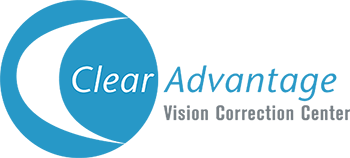Posted by: Clear Advantage in Uncategorized on November 4, 2024
Even if you’ve been told LASIK isn’t right for you, PRK can offer an alternative path to crystal-clear vision and freedom from visual aids. As the first laser vision correction procedure, it has been helping hundreds of thousands achieve high-definition vision for decades.
However, choosing to undergo any procedure is a big decision, and it’s important to learn all the facts when considering PRK. Keep reading to learn more about whether you should consider PRK to enhance your vision.
What is PRK?
PRK, which stands for photorefractive keratectomy, is a procedure that can correct common refractive errors like nearsightedness, farsightedness, and astigmatism. These refractive errors cause light to hit the retina at the wrong spot, resulting in vision that’s out of focus.
PRK uses a specialized laser to reshape the cornea to focus light directly on the retina, providing you with crisp, clear eyesight
Am I a Good Candidate for PRK?

If you’ve been told you’re not a good candidate for LASIK due to thin corneas or dry eye syndrome, PRK could be the vision correction procedure for you. LASIK involves the creation of a flap to access the cornea, which can be dangerous if your corneas are too thin.
Instead, PRK removes the outer surface of the cornea to access the tissue. This makes the process safer for patients with thin corneas or dry eye.
You may also want to opt for PRK if you are an athlete who participates in contact sports. The flap made during LASIK has the potential to dislodge as a result of an injury, which could threaten your eyesight.
Because PRK does not involve the creation of a flap, it can reduce your risk of vision complications with injuries. Typically, good PRK candidates also:
- Are 18 or older
- Are not pregnant or nursing
- Are in good health
- Don’t have advanced cataracts or glaucoma
- Have had stable vision for one year or more
- Don’t have diabetes that is not under control
- Have healthy corneas
- Don’t have autoimmune conditions like lupus, Sjogren’s syndrome, or rheumatoid arthritis
- Don’t have severe corneal scarring
- Don’t have a history of eye infections
Eye doctors typically use these guidelines when assessing your candidacy for PRK. However, the only way to know whether you are a good candidate for the procedure is to attend a consultation with your eye doctor at Clear Advantage Laser Vision Correction.
Besides asking questions about your medical history and candidacy, they will also examine your eyes to determine if they are healthy enough to undergo the procedure and if your refractive errors can be corrected with PRK.
What are the Benefits of PRK?

PRK has many incredible benefits, the greatest of which is high-definition, clear vision. After PRK, you can experience life’s great moments with remarkable clarity.
From watching your favorite shows to enjoying the view at the end of a hike, clear eyesight can enhance every moment, making your vision more vivid than ever. It can also improve your accuracy when it comes to games and sports, giving you the advantage of sharp eyesight.
Another benefit of PRK is that it can reduce and even eliminate your need for glasses and contacts. If you lead a busy, active lifestyle, it can be challenging to keep track of your visual aids, maintain a good cleaning schedule, attend yearly appointments to update your prescription, and deal with daily frustrations that come with them.
By minimizing your need for visual aids, PRK can not only help you enjoy more freedom but can save you money as well. Expenses for glasses and contacts can add up over time.
This includes repairs, prescription renewals, monthly or daily lenses, and cleaning supplies. However, PRK is just a one-time cost that can bring you clear vision for decades.
With the money you’ll save on visual aids, the procedure will eventually pay for itself!
What to Expect During Your PRK Procedure
Before beginning the procedure, your eye doctor will first numb your eye with anesthetic drops and place an eyelid holder to keep you from blinking. Then, they will remove the epithelium and use an excimer laser to reshape your cornea.
The whole procedure typically takes around 15 minutes. Once the cornea is reshaped, your eye surgeon will place a bandage contact lens over your eye and send you home to begin recovery.
You will need someone to drive you to and from the procedure, so be sure to organize a ride before your appointment.
When Will My Vision Improve after PRK?

The key to a smooth recovery from PRK is resting and allowing your eyes to heal. You can download some new music or podcasts to keep you entertained while you rest your eyes or enjoy long, peaceful naps while remembering to wear your eye protection.
Throughout your recovery, you’ll have regular follow-up appointments with your eye surgeon so they can monitor your progress and clear you for certain activities like exercise, working, and driving.
Most patients notice vision improvements within 3-5 days, with eyesight continuing to sharpen over the next six weeks. You will likely experience your best vision six months after your initial procedure and enjoy the stunning clarity you’ve been waiting for.
Are you ready to learn more about how PRK could transform your vision? Schedule an appointment at Clear Advantage Laser Vision Correction in Portsmouth, NH, today!






